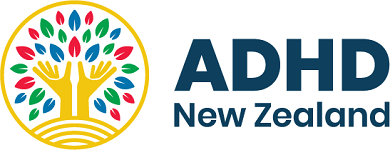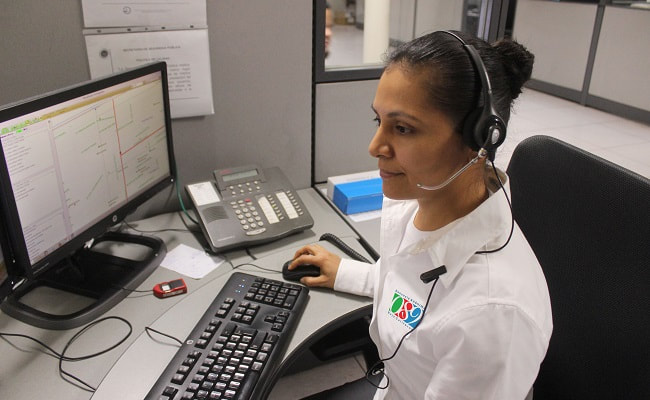How to be mindful of your emotions and respond accordingly
by Michele Danneels, M.S., Speech Language Pathology, Dip MCBT, Registered Professional, Bowen Practitioner
Mindfulness Cognitive Behavioural Therapy (MCBT) is based on the Mindfulness-Based Stress Reduction (MBSR) technique which is a therapy spread over 8 weeks and was created by Jon Kabat Zinn in 1979. Zindel Segal, Mark Williams and John Teasdale studied MBSR to create MBCT. It was designed as a treatment procedure to help patients with depression cope with their disorder and the relapse phases of depression.
It is taught to patients in the remission phase of their condition and aims to make them aware of their emotions, thoughts and body sensations, so that they can respond to them in the correct way and do not let them control their body. The foundation of this therapy is meditation. It is taught to patients, so that they can calm themselves and live a peaceful life. MBCT has derived concepts from both Cognitive Behavioural Therapy (CBT) and MBSR.
The notion of meditative exercises and mindfulness is derived from conventional Buddhist practice. MBCT does not focus on any metaphysical or religious aspects of Buddhist practice. It teaches you to concentrate your attention on a certain object or issue, not to judge your present moment, but to live in the current moment and experience your senses and emotions completely but with a healthy perspective.
Mindfulness refers to being aware and completely conscious of yourself. This technique makes you sense everything happening around you. You become aware of your fears, thoughts, emotions, and problems. In addition, this technique helps you to become free of the pain that is disturbing you. Individuals are taught deep breathing accompanied with relaxation techniques that help them feel calm. Mindfulness practice will do wonders for your body, mind and life. It can take time to reap the amazing rewards of MCBT, but your persistence and patience will make it well worth it.
MBCT is different from CBT in that it does not try to change the exact content of one’s negative thinking, instead it motivates the individual to change the relationship they share with their feelings, body sensations and thoughts, so that they can understand that all these elements are basically fleeting situations in their mind and body that they can disengage with. It’s the disengagement which is key to freeing oneself of their repetitive and negative automatic thinking as this is very unhelpful and detrimental to one’s well-being. It’s the learning how to be present and in the now which is so liberating.
Research supports a subset of adolescents and adults with ADHD (Mindfulness Meditation Training in Adults and Adolescents with ADHD) who benefitted from mindfulness training and it was shown that mindfulness training may improve behaviour and neurocognitive impairments. Furthermore, results from a study of children ages 9 to 13 (A Randomized Trial of Mindfulness-Based Cognitive Therapy for Children: Promoting Mindful Attention to Enhance Social-Emotional Resiliency in Children) show that MCBT is a promising intervention for attention and behavioural problems and may reduce childhood anxiety symptoms which is so often seen with those children diagnosed with ADHD.
MBCT:
As an adult with ADHD, facing the challenges in what can be a very stressful world can be difficult. Like so many with ADHD, I understand the fear and pain anxiety and depression bring and the havoc these cause on one’s life and family. As a speech language therapist for over 20 years, working with children (ADHD/ASD) to improve their social skills brought back many painful memories of the intense anxiety I experienced as a child and still struggled with. I decided to earn a diploma in MCBT so that I could provide invaluable tools to help empower the individual with ADHD/ASD to live with more peace and calm in their lives.
Contact Michele Danneels at:
SereneVitae
[email protected]
@serenevitae
021 319 657
Mindfulness Cognitive Behavioural Therapy (MCBT) is based on the Mindfulness-Based Stress Reduction (MBSR) technique which is a therapy spread over 8 weeks and was created by Jon Kabat Zinn in 1979. Zindel Segal, Mark Williams and John Teasdale studied MBSR to create MBCT. It was designed as a treatment procedure to help patients with depression cope with their disorder and the relapse phases of depression.
It is taught to patients in the remission phase of their condition and aims to make them aware of their emotions, thoughts and body sensations, so that they can respond to them in the correct way and do not let them control their body. The foundation of this therapy is meditation. It is taught to patients, so that they can calm themselves and live a peaceful life. MBCT has derived concepts from both Cognitive Behavioural Therapy (CBT) and MBSR.
The notion of meditative exercises and mindfulness is derived from conventional Buddhist practice. MBCT does not focus on any metaphysical or religious aspects of Buddhist practice. It teaches you to concentrate your attention on a certain object or issue, not to judge your present moment, but to live in the current moment and experience your senses and emotions completely but with a healthy perspective.
Mindfulness refers to being aware and completely conscious of yourself. This technique makes you sense everything happening around you. You become aware of your fears, thoughts, emotions, and problems. In addition, this technique helps you to become free of the pain that is disturbing you. Individuals are taught deep breathing accompanied with relaxation techniques that help them feel calm. Mindfulness practice will do wonders for your body, mind and life. It can take time to reap the amazing rewards of MCBT, but your persistence and patience will make it well worth it.
MBCT is different from CBT in that it does not try to change the exact content of one’s negative thinking, instead it motivates the individual to change the relationship they share with their feelings, body sensations and thoughts, so that they can understand that all these elements are basically fleeting situations in their mind and body that they can disengage with. It’s the disengagement which is key to freeing oneself of their repetitive and negative automatic thinking as this is very unhelpful and detrimental to one’s well-being. It’s the learning how to be present and in the now which is so liberating.
Research supports a subset of adolescents and adults with ADHD (Mindfulness Meditation Training in Adults and Adolescents with ADHD) who benefitted from mindfulness training and it was shown that mindfulness training may improve behaviour and neurocognitive impairments. Furthermore, results from a study of children ages 9 to 13 (A Randomized Trial of Mindfulness-Based Cognitive Therapy for Children: Promoting Mindful Attention to Enhance Social-Emotional Resiliency in Children) show that MCBT is a promising intervention for attention and behavioural problems and may reduce childhood anxiety symptoms which is so often seen with those children diagnosed with ADHD.
MBCT:
- reduces chronic pain
- boosts your immune system
- reduces feeling of depression, anger, anxiety and confusion
- restores balance and peace in your body
- helps you to make better decisions
- better conflict resolution skills
- increased attention and focus
- improves emotional regulation and social behaviour, and
- appropriate for children (ASD/ADHD), adolescents, and adults.
As an adult with ADHD, facing the challenges in what can be a very stressful world can be difficult. Like so many with ADHD, I understand the fear and pain anxiety and depression bring and the havoc these cause on one’s life and family. As a speech language therapist for over 20 years, working with children (ADHD/ASD) to improve their social skills brought back many painful memories of the intense anxiety I experienced as a child and still struggled with. I decided to earn a diploma in MCBT so that I could provide invaluable tools to help empower the individual with ADHD/ASD to live with more peace and calm in their lives.
Contact Michele Danneels at:
SereneVitae
[email protected]
@serenevitae
021 319 657




